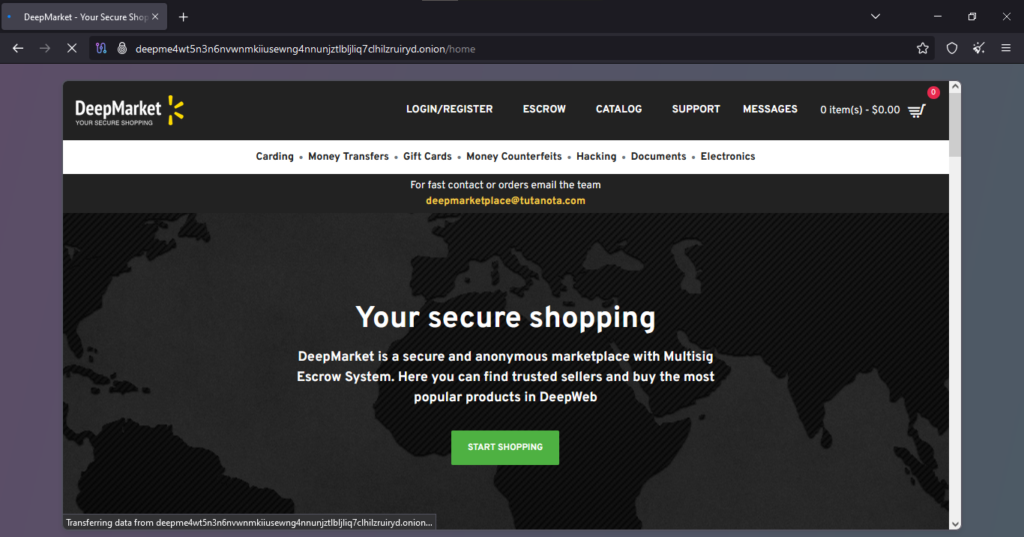Table of Contents
ToggleDeep Market – TOR Scam Report (194)
Onion Link : http://deepme4wt5n3n6nvwnmkiiusewng4nnunjztlbljliq7clhilzruiryd.onion/home
Scam Report Date : 2025-02-18
Client Scam Report Breakdown
Original Scam Report :
The client reports that they encountered a scam after making a cryptocurrency payment in Ethereum (ETH) to an online vendor. They mention that an issue arose related to the transaction fee, but they received no communication or support from the seller regarding this matter. Furthermore, the client states that they lost €260, which was supposedly held in escrow but was never refunded or applied to their purchase. They conclude that both the seller and the escrow system on the platform are fraudulent.
Terminology and Key Definitions
- “Cryptocurrency Payment in ETH” – Ethereum (ETH) is a decentralized digital currency commonly used for online transactions, including those on dark web marketplaces. Because crypto transactions are irreversible, they are often exploited by scammers who receive funds without delivering goods.
- “Transaction Fee Issue” – When sending cryptocurrency, users must pay a network fee (gas fee) to process the transaction. In some scams, vendors claim there was a fee miscalculation or require an additional payment to complete the order, which is a tactic to extract more funds without fulfilling the purchase.
- “Escrow Fraud” – A legitimate escrow system holds a buyer’s payment securely until the seller delivers the product. However, fake escrow systems on fraudulent marketplaces pretend to safeguard funds but ultimately allow the seller to withdraw them without delivering the promised goods. The client’s mention of losing €260 in escrow suggests that the platform falsely represented itself as a secure marketplace while facilitating theft.
Analysis and Scam Indicators
This report contains several strong indicators of fraud. First, the lack of response from the seller following a reported payment issue is a common scam strategy, as unresponsive vendors avoid accountability while retaining funds. Second, the problem with transaction fees suggests that the vendor may have manufactured a false issue to extract additional payments, knowing that the client has limited recourse. Lastly, the escrow fraud is a significant red flag, as escrow systems are meant to protect buyers—but in this case, the funds were never safeguarded or returned. These tactics align with well-documented cryptocurrency scams, where fraudulent marketplaces manipulate trust mechanisms to deceive buyers and disappear with their funds.






